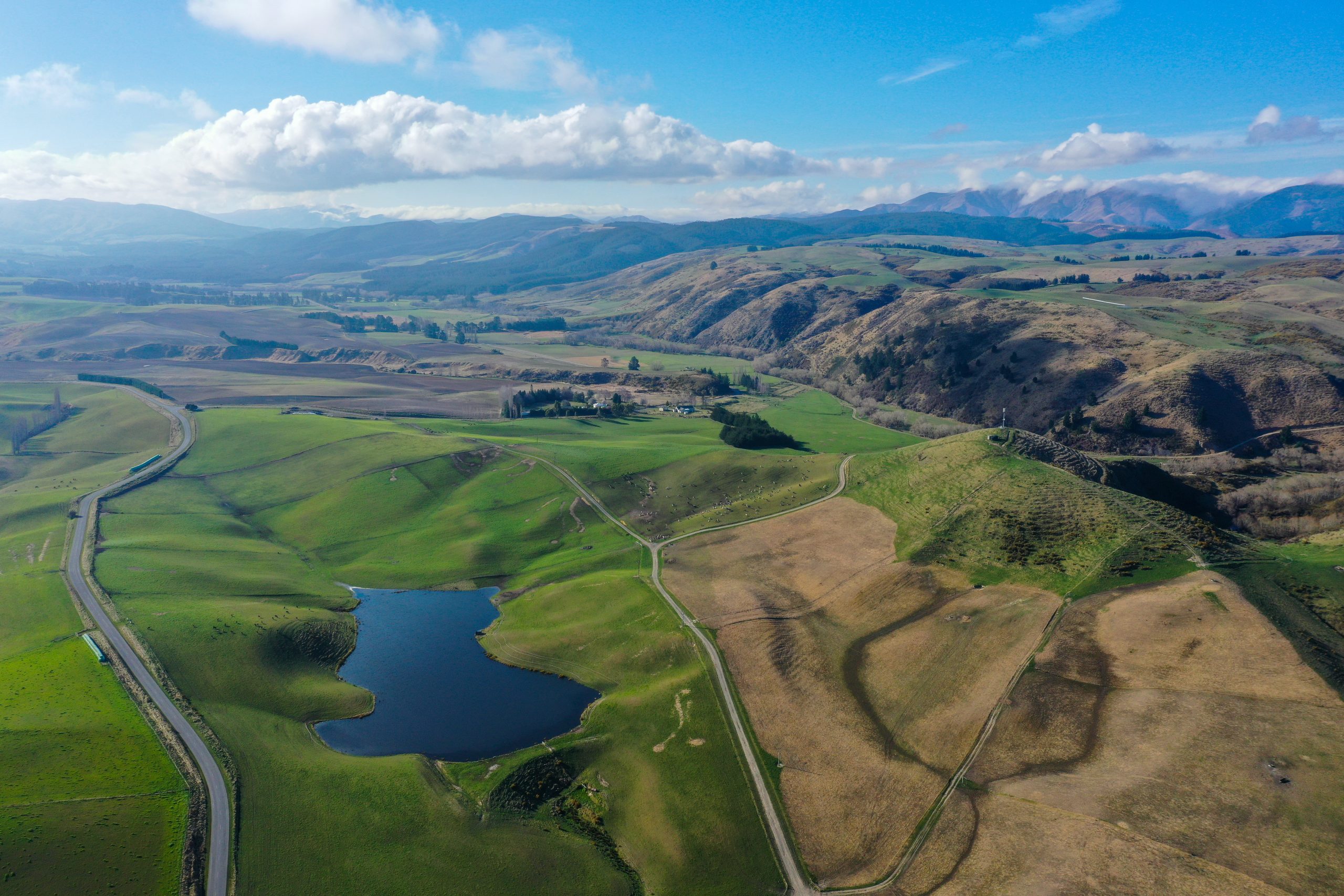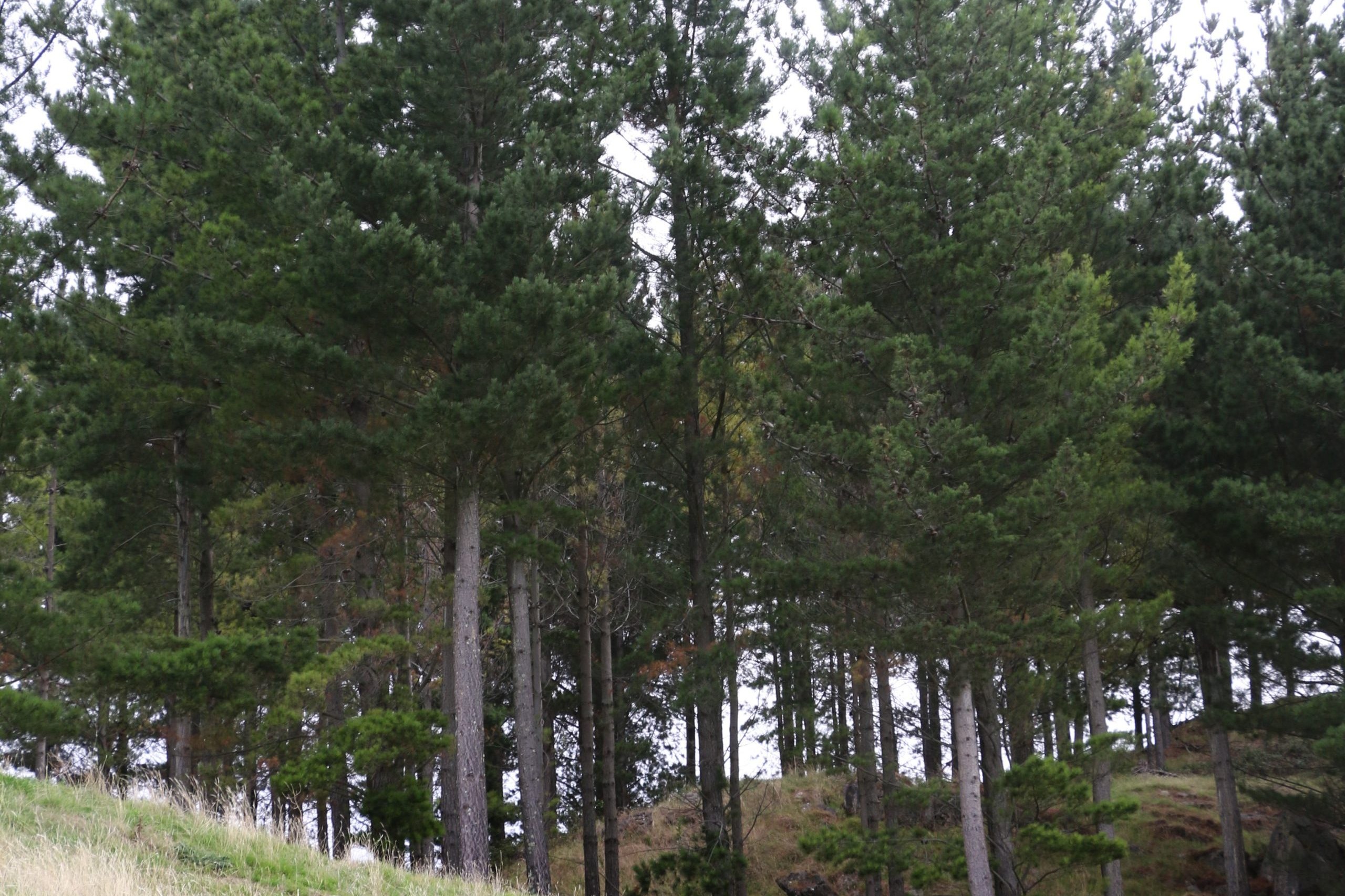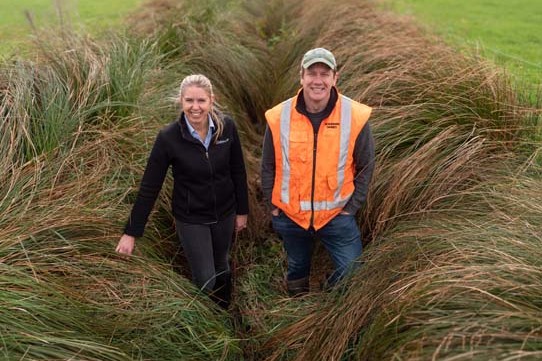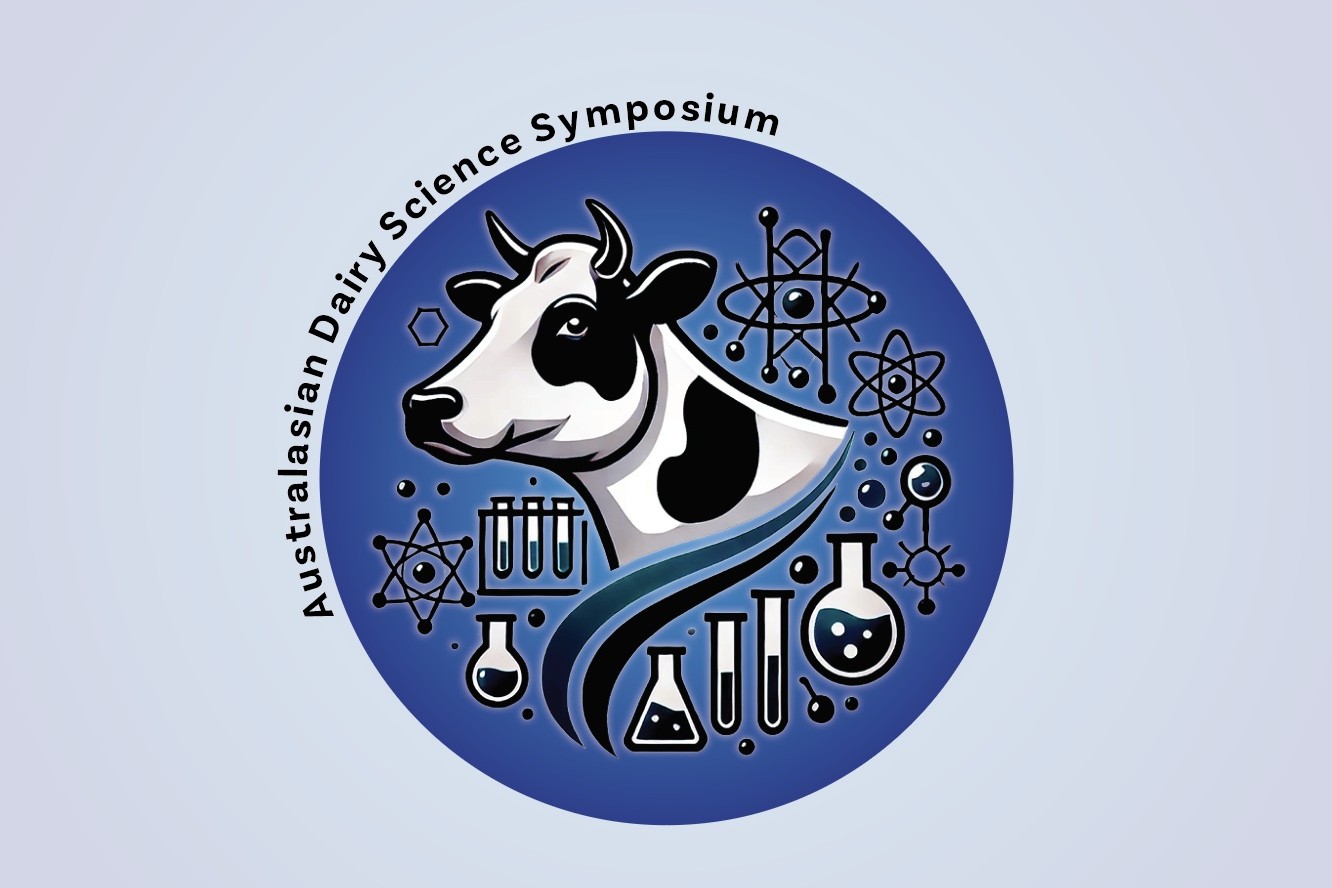Conall and Rowena Buchanan believe farmers benefit from becoming more engaged with their industry structures, their environment and their communities; they told Elaine Fisher why.
When Paeroa dairy farmers Conall and Rowena Buchanan were considering where to buy their first farm the strength and vibrancy of the local community was almost as important as the property itself.
“The health of our communities has an impact on our economic as well as personal wellbeing,” said Conall Buchanan in early April.
A few days later, on Thursday April 30, an accident in the Karangahake Gorge near Paeroa served to illustrate dramatically the truth in that belief.
A stock truck bringing some of the Buchanan’s rising two-year olds home from grazing crashed on State Highway 2 in the Karangahake Gorge with its trailer ending up partly in the Ohinemuri River. Twenty-one of the 35 heifers on the trailer did not survive. They were high BW and well grown. A lot of supplement had been fed to them over the summer drought to keep them close to target liveweights.
“The accident occurred in a very tight part of the Karangahake Gorge. This made extracting the survivors from the trailer, swimming them across the river and then walking them out of the gorge on the Hauraki Rail Trail a significant challenge,” says Conall.
The event highlighted the value of a strong community, he says. “I knew the vets and many of the firemen who helped. A group acted as a hauling team to extricate the heifers from the trailer in a very tricky situation.”
Since Conall was known to the emergency responders they were happy for him to go down into the river to assist the vets, but that experience was tough. “The vets were making decisions about which animals to euthanise and I was glad it was them and not me. It’s never easy to make those kind of decisions when they are your animals.”
Conall is also grateful to two local landowners who helped look after survivors until they could be transported home. “The transport company dealt with the situation very well and fortunately the truck driver was OK.
“Their carrier insurance is expected to cover the loss of the cows. We will use that money to purchase replacements.
“While it was a terrible event, the way people and community responded meant the outcome was much better than it could have been.”
This summer’s drought on the Buchanan’s 275ha Awaiti Farm near Paeroa led to parts of the herd dried off from February and the last group in late April. “We are down on production, but the important thing now is to concentrate on the season ahead.”
Paddocks planted in chicory have helped Awaiti Farm’s cows come through the season in reasonable condition. “At one stage they were pretty much the only green paddocks on the farm.”
Farming as a System 1 or 2 with no (or very little) brought in feed, the aim is to produce 900 to 950kg MS/ha with the 840 Jersey and crossbred cows. “We haven’t achieved that this season because of drought.”
The land is virtually flat with a mix of sandy loam and clay soils. “The only hills are stop banks that are five to six metres high, and you have to be aware of how steep they are compared with driving over the rest of the farm.”
Those stop banks plus floodgates and pumps keep the farm free of floods but drainage is still important for the clay soils.
Jason and Kim Fox are Awaiti Farm’s contract milkers and employ three staff. Conall is now seldom involved in milking, concentrating instead on farm management, development and his roles in the wider community.
In 2018 a new 54-bale rotary dairy and 2.5 million litre pond were built to replace two of the farm’s aging sheds and effluent systems. Conall describes the dairy as reasonably standard with Protrack to help with drafting. The new effluent system includes the ability to irrigate effluent over a wider area.
While Conall is now undisputedly a farmer it wasn’t a given that he would follow that career path. When he left school he completed a Bachelor of Agriculture at Massey University and as part of the degree spent a summer in Australia working on a cropping farm.
Back in New Zealand he decided dairy farming offered opportunities to grow a business of his own with multiple pathways to farm ownership. He started in 1987 when farming was considered a “sunset industry” but Conall says it was a good time to buy cows. “I mortgaged my shot gun and car, got a Rural Intermediate Credit Association loan, used a meagre farm ownership bank account and got a small short-term loan from my parents.”
Farm management experience led to 50/50 sharemilking. After five years doing a lot of development work on that first job, he and his wife Rowena contracted out their sharemilking role and headed overseas to travel and work for a year.
“During that time we decided our next goal was to buy a farm.” On returning they took on multiple sharemilking jobs and in 1999 bought and operated their first 63ha farm while still sharemilking. In 2004 they bought Conall’s parents’ farm and, through a number of acquisitions and an adjacent lease, have built the amalgamated operation to 275ha.
“We could have gone to the South Island, which would have made more economic sense, but for us it was about more than that.”
Conall grew up in the area and knows it well. “Paeroa is a good place to live. People pull together and we wanted our children to grow up in a community where people are actively involved and connected.
“People who live in communities that are connected, where people feel they belong, have a higher sense of wellbeing,” he says.
“During the Covid-19 lockdown we recognised it was even more essential to carry on and do our bit for the economy but also for our community. Rowena has been shopping for several neighbours, family and older acquaintances. We keep in regular contact with those around us.”
Lockdown had its challenges and minor frustrations but Conall considers himself lucky to be in an industry that could largely continue to operate. Their children certainly appreciated the ability to be outdoors with room to roam.
Rowena and Conall gained a fresh perspective on farming when in 2005 they moved with their young family to Chile where Conall became the first CEO of a New Zealand-led dairy farming initiative. “We grew the operation from scratch to 100+ staff, then bought and integrated another operation.”
With 40,000 cows the company is now Chile’s largest milk supplier.
“It is heartening to see the growth of the investment there. New Zealand farming systems transfer well to Southern Chile with its temperate climate and good soils.
Not too many places exist where you can replicate our pastoral systems and where land is not prohibitively expensive because of population pressures.”
The youngest of the couple’s three children was born in Chile. After three years, the family returned to New Zealand when the oldest was ready to start school.
“The children were all fluent in Spanish, but they’ve lost most of the language now.”
The Buchanan’s farm business plan includes investing in the community through serving on school and community committees, financial sponsorship and making their property available for community environmental projects. Stands of kahikatea trees have been fenced off and underplanted with natives.
Conall has also encouraged nearby Netherton School to become part of the Enviro Schools initiative. The school grows native seedlings and, in partnership with local farmers, underplants kahikatea stands that the farmers have fenced off.
Waikato Regional Council often assists with materials on farm.
“Farmers and anyone in business should have at least one connection outside their business that is not necessarily about earning dollars. If we all contribute to our communities they are better places to live.”
For Conall it is also about leadership and ensuring the dairy industry is recognised for the right reasons and has a voice. He is a past national chair of Federated Farmers Sharemilking Section and a founding member of the Fonterra Shareholders Council. Still a committed Fonterra farmer, Conall is concerned many shareholders are not as engaged as they could be in their co-operative. “It’s the same with Livestock Improvement, which is another valuable co-op. It worries me because I’ve seen what happens when co-ops are lost overseas.
They may not be perfect but they are a better model for suppliers. Shareholders need to be involved.”
Water quality work ongoing
To ensure farming’s voice was heard Conall became part of the Hauraki Gulf Marine Spatial Plan.
Known as the Sea Change process, it showed that the biggest issue facing water quality in the gulf is sediment that dates back to land clearance and gold mining in the late 1800s to early 1900s.
However, the health of the gulf is still declining and the dairy sector, alongside other land users, is playing its part to halt that.
“Good practice is widely used already but getting all landowners on board will make even more difference. Getting the basics right across all farmers and land use types will take us a long way towards where we need to go.
“Nationally we still have plenty of work to do. Our waterways can, and should, be better than they are. But let’s be clear, we are not in a terrible place.”
While Conall supports some of the proposals in the current government’s Essential Freshwater package, he says others ignore work completed and programmes already in place, “with heavy-handed, counterproductive, one-size-fits-all, ineffective and disproportionately expensive regulation”.
“We have plenty to do in New Zealand, but cutting production here and replacing it with product from elsewhere that has a greater negative footprint is like cutting off our nose to spite our face.”
FARM FACTS
Owners: Rowena and Conall Buchanan
Location: Hauraki Plains near Paeroa
Farm size: 275ha effective
Cows: 840 jersey and cross bred
Production: 900 to 950kg MS/ha (most seasons)
Farm name: Awaiti Farm





